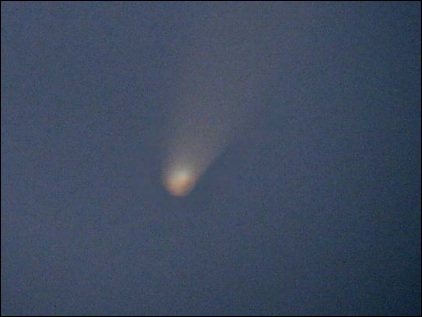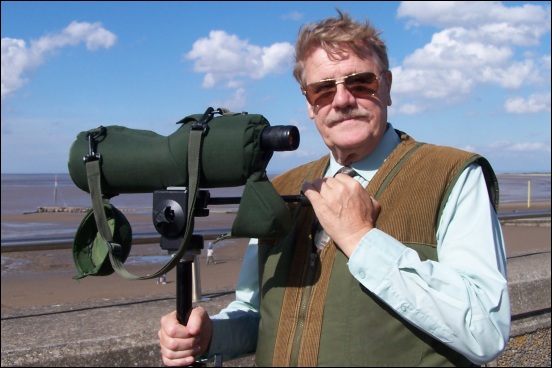One of the brightest comets for more than 30 years has been spotted on two nights this week by a local astronomer near Burnham-On-Sea.
Colonel Greg Dye-Hodge Beardsley, pictured above, captured this image of the McNaught Comet from Steart Point opposite Burnham on Wednesday and Thursday nights.
Speaking to Burnham-On-Sea.com, he said: “It is heading towards the sun and as it approaches, the solar heat and radiation causes its frozen material to out-gass. As it closes with the Sun its head grows larger and its tail longer.”
 “It will eventually pass behind the sun and if it survives this close encounter, it will emerge even larger and with a longer tail. It might grow so large that it will be visible in daylight, a very rare event.”
“It will eventually pass behind the sun and if it survives this close encounter, it will emerge even larger and with a longer tail. It might grow so large that it will be visible in daylight, a very rare event.”
“I viewed the comet on the last two evenings from Steart beach. It was observable some 30 minutes after sunset to the right of the planet Venus fairly low down towards the horizon.”
“It is a truly wonderful sight in binoculars and magnificent in a small telescope. It is also a splendid naked eye object. There are probably only two more evenings left before it files behind the Sun.”
“It will emerge, eventually, unfortunately in the Southern hemisphere sky. The comet will then begin its long journey back towards the Oort cloud millions of miles beyond Pluto from whence this wanderer came.”
“The Oort cloud is a mass of billions of comets orbiting the Sun at a distance
of one third the way to the nearest Star. This comet will eventually leave our skies perhaps never to return again or perhaps to emerge once more in thousands of years time to delight future generations.”
Colonel Dye-Hodge Beardsley, who now lives at Bridgwater and is a lecturer in astronomy, said spotting the comet was easy. “I used 10×50 binoculars also a 30x80mm telescope on a good tripod. The camera was a 3 million pixel Olympus digital camera held up to the eyepiece.”
“I would add that people should not attempt to search for the comet with any sort of optical aid whilst the sun is above the horizon – you could be blinded.”







